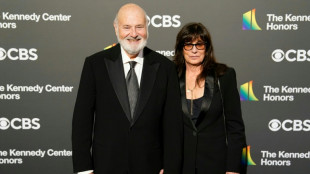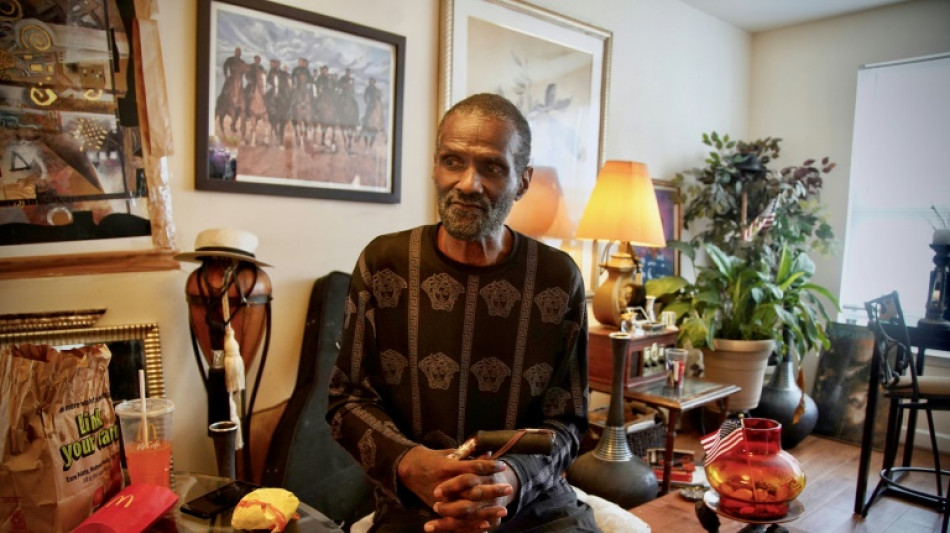
-
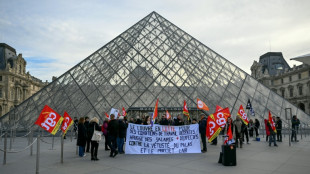 'Angry' Louvre workers' strike shuts out thousands of tourists
'Angry' Louvre workers' strike shuts out thousands of tourists
-
EU faces key summit on using Russian assets for Ukraine
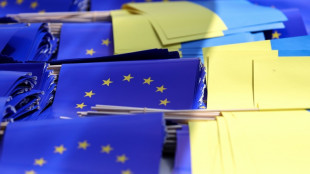
-
 Maresca committed to Chelsea despite outburst
Maresca committed to Chelsea despite outburst
-
Trapped, starving and afraid in besieged Sudan city
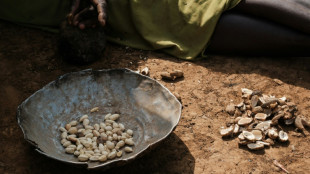
-
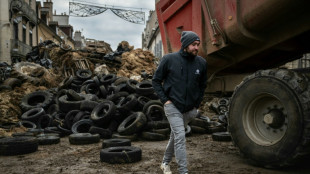 Showdown looms as EU-Mercosur deal nears finish line
Showdown looms as EU-Mercosur deal nears finish line
-
Messi mania peaks in India's pollution-hit capital

-
 Wales captains Morgan and Lake sign for Gloucester
Wales captains Morgan and Lake sign for Gloucester
-
Serbian minister indicted over Kushner-linked hotel plan

-
 Eurovision 2026 will feature 35 countries: organisers
Eurovision 2026 will feature 35 countries: organisers
-
Cambodia says Thailand bombs province home to Angkor temples
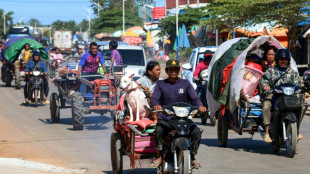
-
 US-Ukrainian talks resume in Berlin with territorial stakes unresolved
US-Ukrainian talks resume in Berlin with territorial stakes unresolved
-
Small firms join charge to boost Europe's weapon supplies

-
 Driver behind Liverpool football parade 'horror' warned of long jail term
Driver behind Liverpool football parade 'horror' warned of long jail term
-
German shipyard, rescued by the state, gets mega deal

-
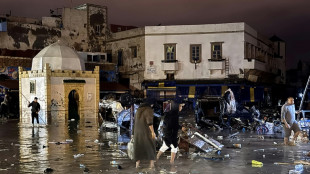 Flash flood kills dozens in Morocco town
Flash flood kills dozens in Morocco town
-
'We are angry': Louvre Museum closed as workers strike

-
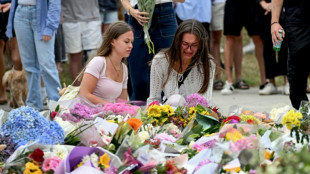 Australia to toughen gun laws as it mourns deadly Bondi attack
Australia to toughen gun laws as it mourns deadly Bondi attack
-
Stocks diverge ahead of central bank calls, US data
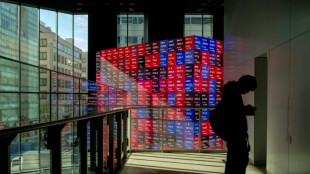
-
 Wales captain Morgan to join Gloucester
Wales captain Morgan to join Gloucester
-
UK pop star Cliff Richard reveals prostate cancer treatment

-
 Mariah Carey to headline Winter Olympics opening ceremony
Mariah Carey to headline Winter Olympics opening ceremony
-
Indonesia to revoke 22 forestry permits after deadly floods
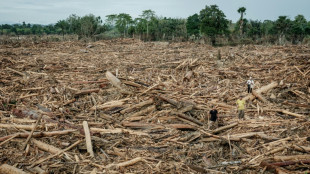
-
 Louvre Museum closed as workers strike
Louvre Museum closed as workers strike
-
Spain fines Airbnb 64 mn euros for posting banned properties
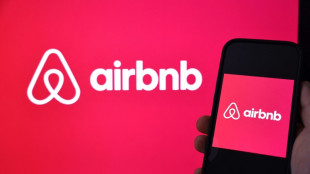
-
 Japan's only two pandas to be sent back to China
Japan's only two pandas to be sent back to China
-
Zelensky, US envoys to push on with Ukraine talks in Berlin

-
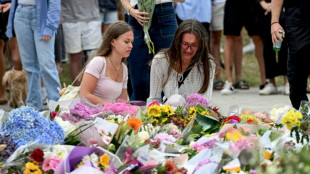 Australia to toughen gun laws after deadly Bondi shootings
Australia to toughen gun laws after deadly Bondi shootings
-
Lyon poised to bounce back after surprise Brisbane omission
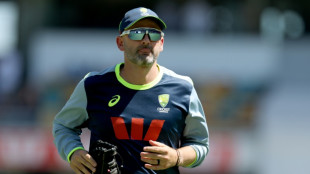
-
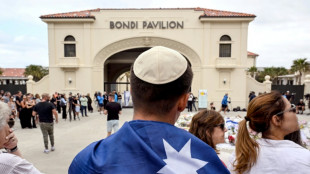 Australia defends record on antisemitism after Bondi Beach attack
Australia defends record on antisemitism after Bondi Beach attack
-
US police probe deaths of director Rob Reiner, wife as 'apparent homicide'
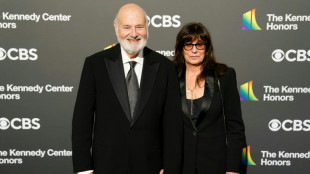
-
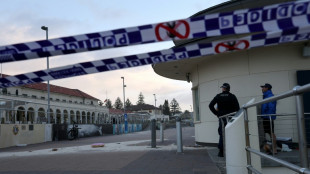 'Terrified' Sydney man misidentified as Bondi shooter
'Terrified' Sydney man misidentified as Bondi shooter
-
Cambodia says Thai air strikes hit home province of heritage temples
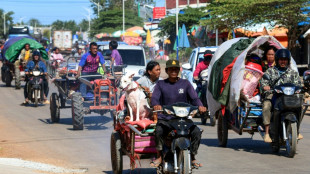
-
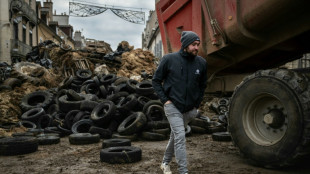 EU-Mercosur trade deal faces bumpy ride to finish line
EU-Mercosur trade deal faces bumpy ride to finish line
-
Inside the mind of Tolkien illustrator John Howe
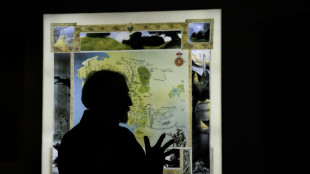
-
 Mbeumo faces double Cameroon challenge at AFCON
Mbeumo faces double Cameroon challenge at AFCON
-
Tongue replaces Atkinson in only England change for third Ashes Test

-
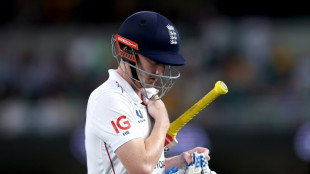 England's Brook vows to rein it in after 'shocking' Ashes shots
England's Brook vows to rein it in after 'shocking' Ashes shots
-
Bondi Beach gunmen had possible Islamic State links, says ABC

-
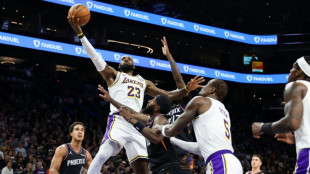 Lakers fend off Suns fightback, Hawks edge Sixers
Lakers fend off Suns fightback, Hawks edge Sixers
-
Louvre trade unions to launch rolling strike

-
 Far-right Kast wins Chile election landslide
Far-right Kast wins Chile election landslide
-
Asian markets drop with Wall St as tech fears revive
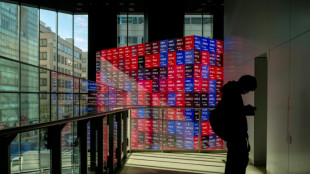
-
 North Korean leader's sister sports Chinese foldable phone
North Korean leader's sister sports Chinese foldable phone
-
Iran's women bikers take the road despite legal, social obstacles
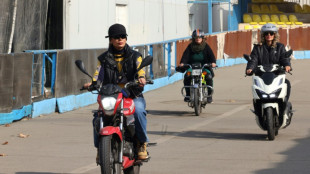
-
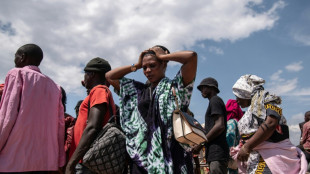 Civilians venture home after militia seizes DR Congo town
Civilians venture home after militia seizes DR Congo town
-
Countdown to disclosure: Epstein deadline tests US transparency
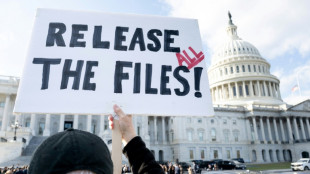
-
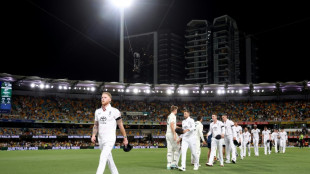 Desperate England looking for Ashes miracle in Adelaide
Desperate England looking for Ashes miracle in Adelaide
-
Far-right Kast wins Chile election in landslide

-
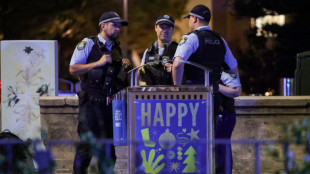 What we know about Australia's Bondi Beach attack
What we know about Australia's Bondi Beach attack
-
Witnesses tell of courage, panic in wake of Bondi Beach shootings
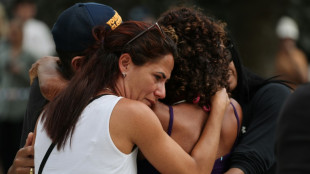
| CMSD | -0.65% | 23.25 | $ | |
| RIO | -0.19% | 75.503 | $ | |
| NGG | 1% | 75.685 | $ | |
| SCS | 0.12% | 16.14 | $ | |
| BCC | -0.33% | 76.29 | $ | |
| CMSC | -0.56% | 23.3 | $ | |
| RYCEF | -1.71% | 14.6 | $ | |
| BTI | 0.29% | 57.265 | $ | |
| VOD | 0.91% | 12.705 | $ | |
| RELX | 2.11% | 41.24 | $ | |
| BCE | -1.5% | 23.36 | $ | |
| GSK | 0.76% | 49.17 | $ | |
| RBGPF | -4.49% | 77.68 | $ | |
| BP | 0.38% | 35.39 | $ | |
| AZN | 0.92% | 90.66 | $ | |
| JRI | -0.42% | 13.5001 | $ |

Black Americans bear the brunt of fentanyl 'epidemic' in Washington
Lorando Duncan wears long-sleeved shirts because his arms bear scars he doesn't like to show: those of the drugs he has been injecting into his veins for decades.
Born in the US capital Washington 65 years ago, the slender African American has been using heroin almost all his adult life.
But the advent of fentanyl, an ultra-powerful and addictive synthetic opioid, changed everything.
"Fentanyl killed a lot of my friends," he tells AFP beneath a picture of America's first Black vice president, Kamala Harris, that he has hung in his apartment in Anacostia, one of the poorest neighborhoods in the city.
"Almost every two weeks, I hear about somebody overdosing on fentanyl."
He fears he will be next. "I need to stop... because eventually I'm going to kill myself. And I know it."
Fentanyl -- sold in powder form and cheap to manufacture, so often used as an additive in other drugs such as heroin -- began flooding the market in 2014.
In 2021, 426 people died of opioid overdoses in Washington -- five times as many as in 2014. Of them, 95 percent were fentanyl-related, and 85 percent were Black people. Like Lorando, the majority were between 50 and 69 years old.
Heroin users have been at the forefront of this "poisoning" of supply, as experts call it.
"One day I bought some drug from a guy I know, but I didn't know it was fentanyl," says Lorando, a former prisoner now living on disability benefits.
He passed out, he says, falling on his hip. Now he walks with a cane.
"When I fell, it was day, and when I woke up, it was nighttime. God woke me up this day," he says.
But now he takes fentanyl up to three times a day to feel "normal" and avoid the illness and nausea of withdrawal.
"Now they use fentanyl to cut heroin. So you basically gonna get fentanyl in everything you buy. Everybody uses fentanyl to cut the dope. Make it potent," he says.
The problem, he adds, is that users never know what they are going to get. "You're playing Russian roulette."
- Building trust -
In Washington, long dubbed "Chocolate City" because of its large African American population, Black people were already dying from overdoses at twice the rate of white people in 2010, according to one study.
By 2019, it was 10 times more. For both periods, this disparity was higher than in any state in the country. Experts say one reason is because of how much more vulnerable Black people are -- lower income, less likely to own a home, less likely to have access to resources that can keep them stable and supported.
A few grassroots organizations are doing their best to combat the ravages of the drugs.
Tyrone Pinkney has been working for one of them, the Family and Medical Counseling Service, for 10 years. The 33-year-old travels around the city, especially what he describes as "the crime areas," in a recreational vehicle.
On the RV's floor is a box containing dirty syringes, collected from visitors who are then given clean ones.
And on the seats are cartons of Narcan, the brand name of naloxone, an antidote capable of blocking the effect of opioids -- and thus saving a person in the process of overdosing.
With a tablet in hand, Pinkney questions the few dozen people who turn up each day, checking for example whether they have been tested for the AIDS virus.
"It's not going to keep them from doing what they're doing. But it'll keep them safe," he explains.
Little by little, bonds of trust are created. On his phone, he scrolls through the names of dozens of "clients," as he calls them, who can call him in case of need.
- 'Perfect storm' -
The association helped more than 2,500 people in 2021, and distributed more than 200,000 syringes, according to regional coordinator Mark Robinson.
"It's an emergency. It's endemic," he tells AFP.
"It's an opioid epidemic, layered beneath a (Covid-19) pandemic, layered beneath a health emergency that was already pre-existing amongst Black and brown people," he continues, listing the ways in which Washington's residents are made vulnerable.
"You have multiple epidemics upgrading simultaneously, it's like a perfect storm. And we're right in the midst of it."
For many, the steps needed to access treatment, such as opioid substitutes methadone or buprenorphine, remain too complex -- making it often easier to get drugs than help.
"We've really worked hard on access," Barbara Bazron, who heads Washington's department of behavioral health, tells AFP.
For example, users no longer need to go through a dispatch center to receive prescriptions -- 70 approved entities can directly receive new patients, she explained.
More than 5,000 people are currently enrolled in these care programs.
The city has also prioritized the free distribution of naloxone, giving away 56,000 kits in 2021, and tests to detect whether drugs contain fentanyl.
City Hall is also "gathering information" on safe injection sites, such as those recently set up in New York, says Bazron, who admits she is willing to look at any option.
"Nothing is off the table," she says.
L.Miller--AMWN
